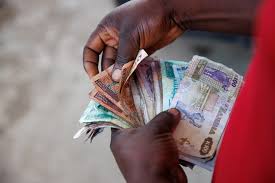Worst Performing African Currencies: Zambian Kwacha, Angolan Kwanza, Nigerian Naira
On a general level, poor currency management and imbalances were also listed among the reasons for weak economic performance, according to experts interviewed on the matter.

According to the report, half of the ten (10) worst-performing currencies globally are African currencies, many of which are struggling to perform due to a lack of dollar liquidity, inflationary pressures as well as volatile commodity prices.
The 3 worst performing African currencies in the report are the Zambian kwacha, the Angolan kwanza and the Nigerian naira. For oil exporting nations like Nigeria and Angola, the report highlighted reasons for their weak performance such as overdependence on oil which leaves them exposed when prices drop in the global market. On a general level, poor currency management and imbalances were also listed among the reasons for weak economic performance, according to experts interviewed on the matter.
- Advertisement -
The Zambian kwacha had recorded its weakest performance in June, trading as low as 26.4698 per dollar.
- Advertisement -
Data from the Bloomberg report highlighted that the Zambian kwacha had recorded its weakest performance in June, trading as low as 26.4698 per dollar. The report noted that the nation’s reserves have been depleted due to a lack of fiscal sustainability as well as ongoing droughts, which have impacted food imports and increased the country’s external financing needs.
In June, the IMF approved a request to increase its financial support from $1.3 billion to $1.7 billion to help Zambia respond to a severe drought, which has caused crop losses and affected power generation. However, the southern African country’s economy has shown little sign of recovery due to struggles to repay its external debts, leaving the kwacha to underperform.
According to the report, the kwanza’s decline is linked to Angola’s overdependence on oil for its financing needs.
- Advertisement -
The Angolan kwanza recorded its worst performance in 25 years after it depreciated by 12% this year, trading at 950 per dollar in the foreign exchange market. According to the report, the kwanza’s decline is linked to Angola’s overdependence on oil for its financing needs. The report noted that revenue from oil represents over 60% of the nation’s budget. However, the falling price of crude oil in the global market is hurting the country’s hard-currency reserves.
The naira currently trades at 1,580 per dollar as the outlook for the year-end remains cloudy.
Despite reforms aimed at liberalizing the naira and reviving the economy, the Nigerian economy has shown little to no signs of economic recovery, as the nation continues to grapple with issues around liquidity and dollar supply. The naira currently trades at 1,580 per dollar as the outlook for the year-end remains cloudy.
According to the report, the drop in crude prices may have exacerbated the problem with the economy; however, the underlying issue as pointed is around the government’s slow pace of reforms, combined with haphazard monetary policies, which continues to keep the currency in undervalued territory.
Source:norvanreports.com
- Advertisement -



